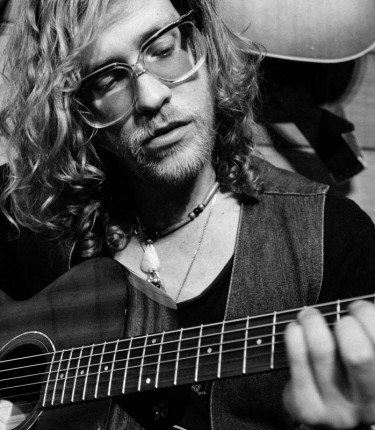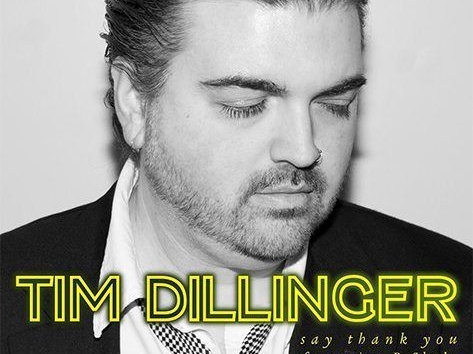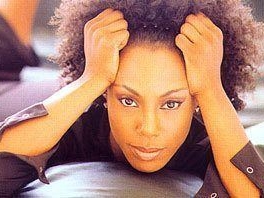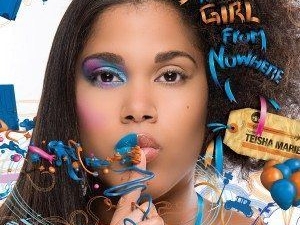Grown Folks Music caught up with talented singer/songwriter Allen Stone who wowed us a few years back when we were introduced to him through his second album and specifically his song “Unaware’. The video landed in rotation on Vh1 Soul and Stone knocked Conan O’Brien’s socks off when he made his national television debut on his show. Allen Stone returns to perform on Conan TONIGHT at 11 pm Eastern. Do yourself a favor and check him out and read the interview below and enjoy.
GFM: You’ve got a new album out– Radius. It’s your third album, but your first with Capitol. I saw you doing your thing on the rooftop of the Capitol Records building a few weeks back. Tell us why you chose to join forces with Capitol and why you think it was good fit, especially after being independent. Do you still feel you have the creative freedom as an artist?
AS: I chose to go to a major (record label) about two or three years after they started courting me. Atlantic and Capitol were banging down my door for a while. Part of it came down to making sure that the deal that I got was the right deal. I didn’t want to skip any steps on my way to the major label. Capitol, and the people at Capitol are beautiful, but Capitol is a business. Obviously it’s in their best interest to be savvy in their business dealings of course, just like me.
My fear initially with major labels was not having artistic say– not having a voice in the direction that my projects would go. So I made sure to take a lot of time before signing with a major label so that I had leverage when I came into the label. I told Atlantic and Capitol that I wouldn’t sign a 360 deal. Which, nowadays is pretty unheard of at least from my experience with other people who have signed deals with labels. They’re usually pretty exclusively 360 deals, which means they take a percentage of everything– your touring, your merch, (merchandise), your publishing potentially. So on and so forth. I definitely did not want to do that. I’d toured the entire world at this point ten times over and had done it all on my own two feet and I didn’t feel like any company deserved a piece of that.
They gave me the right deal and I also trusted the people at the label. I had to time to mature and develop a relationship with the people at the label to where at that point I believed that they were going to give me artistic freedom and they were going to trust me the art side of things.
GFM: A few songs stood out on the album. I’d like to ask you about them or find out a little bit more about them and how they came to be. One of those songs is American Privilege”. It gives me a little bit of an “Unaware” vibe… not that it sounds like “Unaware”, but it just gives me that vibe. How did that come to be?
AS: Well it’s a song for myself first and foremost. I’ve had the extreme fortune of being born a male… first and foremost… in our culture. Not that that’s better than anything, but without question I think you can ask anybody in the world and it’s definitely an upper hand right off the bat. I was born white, which is obviously not better than anything, but I think you could ask the majority of the world and they would tell you that being born white is very advantageous, and I was born American. Just that in itself is like winning the lottery and I take it for granted everyday… everyday with all of the choices I make. The money I spend, the things that I pay attention to and watch and the conversations I have. I have a terrible disease of taking advantage of my privilege instead of utilizing it for the betterment of other people.
First and foremost that song is for me: It’s a song where I’m admitting my guilt and I’m admitting the problem which is I believed stemmed from this privilege I was born into. I never really had to bite and claw for survival. I’ve never felt that even though my family was not wealthy by any means. We were very, very low middle class. My parents always provided for me. They always loved me. They always nurtured me and I still take that for granted to this day at 28 years old.
That song is first and foremost for me. But I also believe at a time where the world is facing actual problems– the human race is facing potentially catastrophic hurdles in the next 50 years– western culture, specifically American culture has to get its s%#! together. We are the trend setters in the world. We are the wealthiest country in the world per capita. Excuse me, as far as population goes. There’s obviously Norway and Sweden. It’s very hard and like I said I was born in my own capacity so I only understand the world within my capacity, but I think we need to attempt to quit bickering so much inside of our country on issues that are strictly bi-partisan and just meant for people to argue with their neighbors. Small, tedious issues that shouldn’t be a problem like gay marriage or abortion or what politician slept with who. These issues that just continue to keep us on the mouse wheel instead of actually dealing with real issues. (Issues) like the plastic island in the middle of the ocean, or the influx of AIDS in Africa, or global warming, or the destruction of the Amazon. Things that are actual problems that will actually affect the next generation. I think we need to figure out our s%#! and start attempting to having a positive impact on the world around us. We can. We can do it. We did it with cigarettes. We did it with women voting. We’ve done it in our country before and we’ve got to continue to move forward and understand that just being born in this country is a privilege. Being born American is already an advantage and already at the one percent of the population of the world.
GFM: I just have to compliment you on your vocals on the record. You’re doing some outstanding singing on this record. But with all of what you just said, is it more important to you that everything that you put out as a recording artist has a message or makes a statement? Is that the most important thing to you with your music?
AS: That’s more important to me than the singing. I like to sing and I’m perfectionist. My favorite singer is Stevie Wonder but one of the greatest things happened to me the first time I saw Stevie play. He messed up. He started the song in the wrong key. He stopped the band and he said, ‘Am I singing in the wrong key?’ It made me so happy. In my opinion Stevie Wonder is one of the greatest singers of all time, but he’s human. He shattered that veil of the brand of Stevie Wonder and allowed us to see his human element.
To me what’s more important as an artist… I mean I’m not famous or even a figure in culture… but to me the most important thing is to represent humanism and cultivate a culture of people who want positive change and want to feel connected and loved inside of a community rather than be perfect. This whole celebrity bull#&^% thing that we’ve manipulated in human culture where there’s these perfect bodies, perfect people and perfect lives is so detrimental to the culture and community that we’re supposed to be leading. I would love to see the downfall of that so quickly. I’m so sick and tired of it.
GFM: I love the way that you are authentically yourself– in appearance and in execution of your music–so, I think that you are doing a lot to combat this whole manufactured image (in the industry). You’re just coming with artistry. That’s what attracted us to you, why we wanted to talk to you, what we appreciate about you and what we think the Grown Folks audience will appreciate about you. With that said, what is your definition of Grown Folks Music?
AS: That’s really tough. That’s a tough question for me to answer because I’m 28 and I am no where near being what I think the public would define as a Grown Folk. I definitely think that Grown Folks Music should be fresh. It shouldn’t be a recycling or a repetition of something else. I see a lot of that happening, especially in pop music. It’s like ‘Oh okay, EDM is cool now. I’m gonna do an EDM song. Or, ‘Okay four on the floor, stomp, folk music is cool, okay we’ll go do that.’ I like to hear music that is at least attempting to be fresh or at least attempting to do something out of the box that’s a little bit different or speak about something that’s a little bit different. To call myself ‘Grown Folk’ or to call my music ‘Grown Folk’ [laughs]… I’m very flattered that you call it that.
Catch Allen Stone on tour. Go to www.allenstone.com for details.
Connect with Allen Stone:
Check out the candid and soulful song Allen Stone discussed at length in the interview: “American Privilege”, from his new album Radius. Get it now at iTunes.
RELATED POSTS
August 16, 2013
GFM Spotlight Interview: Tim Dillinger
June 17, 2011
GFM Spotlight Interview – Adriana Evans
August 22, 2013
GFM Spotlight Interview – Teisha Marie
September 20, 2011
GFM Spotlight Interview – Noel Gourdin
November 24, 2017







